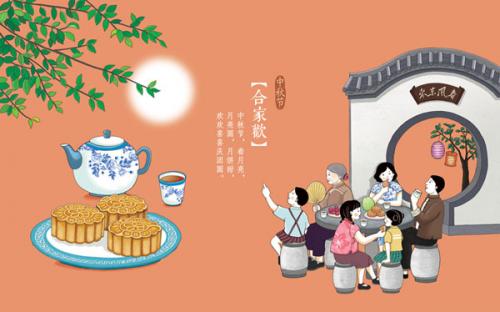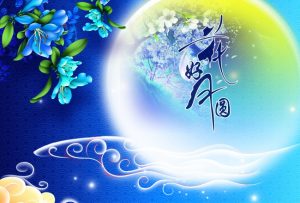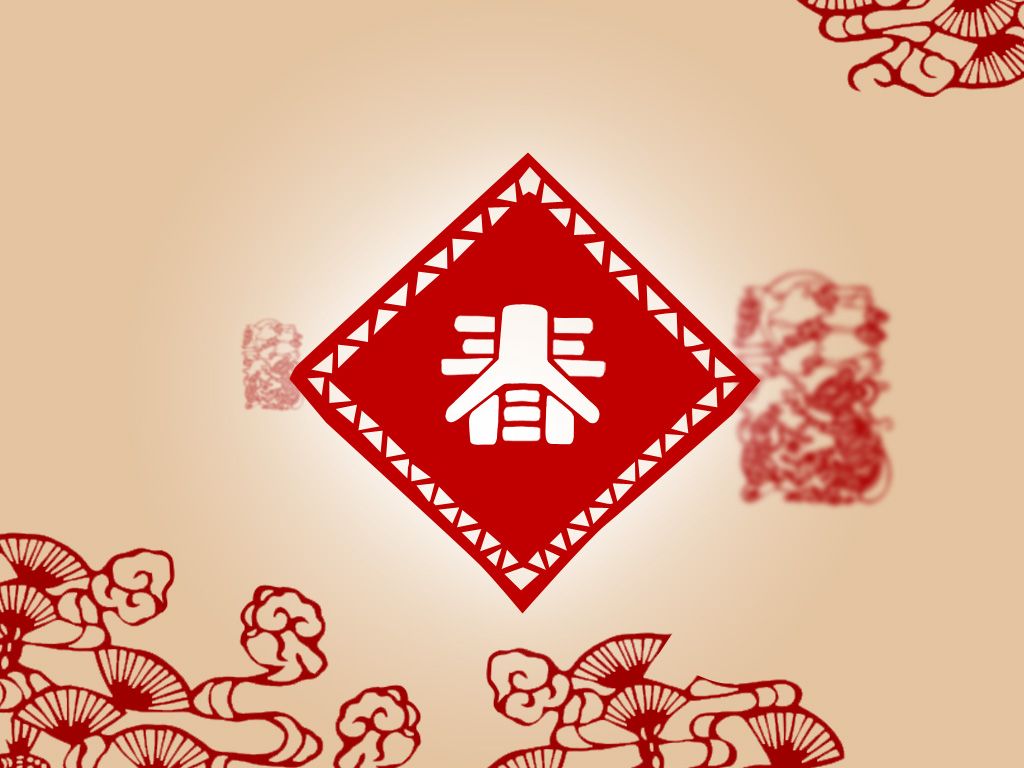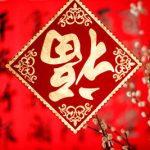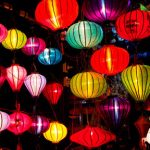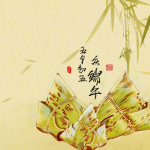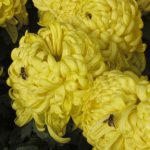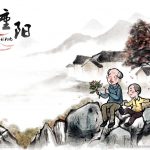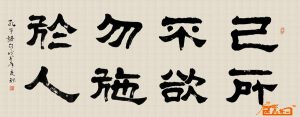
欲速则不达 (yù sù zé bù dá) – More haste,less speed.
爱不是占有,是欣赏(ài bú shì zhàn yǒu, ér shì xīn shǎng)-Love is not about possession, it’s all about appreciation.
“您先请”是礼貌(“nín xiān qǐng” shì lǐ mào) – “After you” is good manners.
萝卜青菜,各有所爱(luó bo qīng cài , gè yǒu suǒ ài)- Every man has his hobbyhorse.
广交友,无深交(guǎng jiāo yǒu,wú shēn jiāo) -A friend to everybody is a friend to nobody.
一见钟情 (yí jiàn zhōng qíng)- love at first sight. It’s generally used for people, but you can also use it for other physical objects.
山雨欲来风满楼(shān yǔ yù lái fēng mǎn lóu), Coming events cast their shadows before them.
不作死就不会死(bù zuō sǐ jiù bú huì sǐ),No zuo no die. It means if you don’t do stupid things, they won’t come back and bite you in the ass. (but if you do, they most certainly will ) .
书是随时携带的花园 shū shì suí shí xié dài de huā yuán – A book is like a garden carried in the pocket.
万事开头难 wàn shì kāi tóu nán – All things are difficult before they are easy.
活到老,学到老 huó dào lǎo, xué dào lǎo – A man is never too old to learn.
身正不怕影子斜 shēn zhèng bú pà yǐng zi xié – A straight foot is not afraid of a crooked shoe.
爱屋及乌 ài wū jí wū – Love me ,love my dog.
好书如挚友 hǎo shū rú zhì yǒu – A good book is a good friend.
一寸光阴一寸金, 寸金难买寸光阴 yí cùn guāng yīn yí cùn jīn, cùn jīn nán mǎi cùn guāng yīn – Time is money, and it is difficult for one to use money to get time.
机不可失,时不再来 jī bù kě shī, shí bú zài lái – Opportunity knocks at the door only once.
一言既出,驷马难追 yì yán jì chū, sì mǎ nán zhuī – A word spoken can never be taken back.
好记性不如烂笔头 hǎo jì xìng bù rú làn bǐ tóu – The palest ink is better than the best memory.
近水知鱼性, 近山识鸟音jìn shuǐ zhī yú xìng, jìn shān shí niǎo yīn – Near to rivers, we recognize fish, near to mountains, we recognize the songs of birds. It is very important to make on-the-spot investigations.
愿得一人心,白首不相离 yuàn dé yī rén xīn, bái shǒu bù xiāng lí – Catch one’s heart, never be apart.
人心齐,泰山移 rén xīn qí, tài shān yí – When people work with one mind, they can even remove Mount Taishan.
明人不用细说,响鼓不用重捶 míng rén bú yòng xì shuō, xiǎng gǔ bú yòng zhòng chuí – People of good sense or expertise need only a hint to understand any matter.
花有重开日,人无再少年huā yǒu chóng kāi rì, rén wú zài shào nián, – Flowers may bloom again, but a person never has the chance to be young again. So don’t waste your time.
顾左右而言他 gù zuǒ yòu ér yán tā -Turning aside and changing the subject.
几家欢喜几家愁 jǐ jiā huān xǐ jǐ jiā chóu – Some are happy, some have worries. Or one man’s disaster is another man’s delight.
人无完人,金无足赤 rén wú wán rén, jīn wú zú chì – It is as impossible to find a perfect man as it is to find 100 percent pure gold.
有借有还,再借不难 yǒu jiè yǒu hái, zài jiè bù nán – Timely return of a loan makes it easier to borrow a second time.
失败是成功之母 / Shībài shì chénggōng zhī mǔ / Failure is mother of success.
人过留名,雁过留声 rén guò liú míng, yàn guò liú shēng -A person leaves a reputation, bad or good, behind wherever he works or stays.
万事俱备,只欠东风 wàn shì jù bèi, zhǐ qiàn dōng fēng – Everything is ready except the east wind. This proverb instructs that everything is ready except what is crucial.
常将有日思无日,莫将无时想有时 cháng jiāng yǒu rì sī wú rì, mò jiāng wú shí xiǎng yǒu shí – When rich, think of poverty, but don’t think of riches when you are poor. This proverb indicates that frugality is the best policy: Be frugal even when you are rich, and don’t dream of riches when you are poor, but work hard and be thrifty.
塞翁失马, 焉知非福 sài wēng shī mǎ, yān zhī fēi fú -A bad thing may become a good thing under certain conditions. According to the book ‘Huainanzi – Lessions of Human World’ , an old man living in a border region lost his horse and people came to comfort him, but he said ‘This may be a blessing in disguise, who knows?’ Indeed, the horse later returned to the man and brought him a better horse.
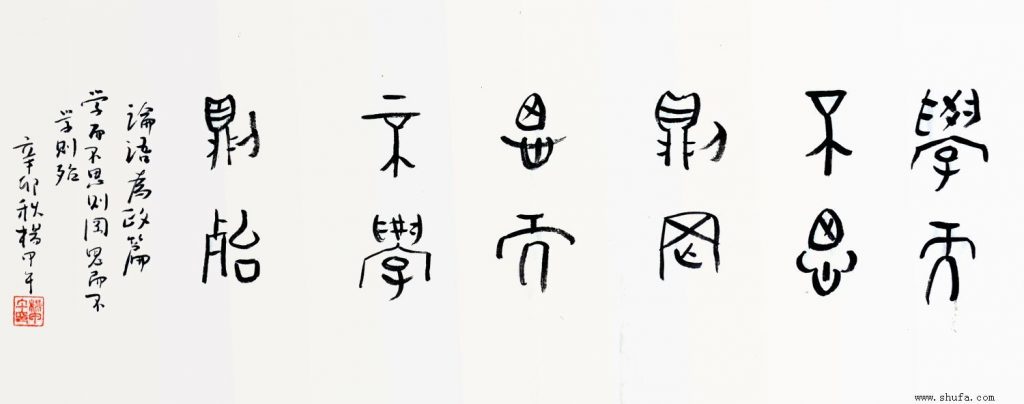
学而不思则罔,思而不学则殆 xué ér bù sī zé wǎng, sī ér bù xué zé dài – Learning without thought means labour lost; thought without learning is perilous.
书到用时方恨少shū dào yòng shí fāng hèn shǎo:It is when you are using what you have learned from books that you wish you had read more. This proverb reminds us that we can never read widely enough.
千军易得, 一将难求qiān jūn yì dé, yī jiang nán qiú – It is easy to find a thousand soldiers, but hard to find a good general. This proverb notes the difficulty of finding an outstanding leader.
小洞不补,大洞吃苦 xiǎo dòng bù bǔ, dà dòng chī kǔ – A small hole not mended in time will become a big hole much more difficult to mend. This proverb tells us that if a trivial problem is not solved in time, it will become a serious and knotty one.
读书须用意,一字值千金dú shū xū yòng yì, yī zì zhí qiān jīn – When reading, don’t let a single word escape your attention; one word may be worth a thousand pieces of gold. This proverb stresses the fact that study requires undivided attention. No single word should be passed over before we fully understand it. Only in this way can study be rewarded.
有理走遍天下, 无理寸步难行 yǒu lǐ zǒu biàn tiān xià, wú lǐ cùn bù nán xíng – With justice on your side, you can go anywhere; without it, you can’t take a step. This proverb stresses the fact that righteousness will see you through all difficulties, whereas without it your progress will be hampered from the very start.
麻雀虽小,五脏俱全 má què suī xiǎo, wǔ zàng jù quán – Small as it is, the sparrow has all the vital organs
.
但愿人长久,千里共婵娟 dàn yuàn rén cháng jiǔ, qiān lǐ gòng chán juān – Wish us a long life to share the beauty of this graceful moonlight, even thousands miles apart. -Sayings and everything we can think of about Mid-Autumn Festival.
听君一席话,胜读十年书 Tīng jūn yīxíhuà, shèng yīng jiāng qí yì wèi shí nián shū- Listen to your advice, better than reading books for ten years.
路遥知马力,日久见人心 lù yáo zhī mǎ lì, rì jiǔ jiàn rén xīn – As distance tests a horse’s strength, so does time reveal a person’s real character. This saying tells us that a long period of testing is needed to understand one’s nature and capabilities.
灯不拨不亮,理不辩不明dēng bù bō bù liàng, lǐ bù biàn bù míng: An oil lamp becomes brighter after trimming, a truth becomes clearer after being discussed. This saying tells us that facing a complicated problem, only by discussion and debate can we get the correct answer. Truth develops through the comparison of ideas.
凡人不可貌相, 海水不可斗量 (fán rén bù kě mào xiàng, hǎi shuǐ bù kě dòu liàng) – As a man cannot be known by his looks, neither can the sea be fathomed by a gourd. This proverb notes that judging by appearance may lead to serious mistakes.
桂林山水甲天下 Guìlín shānshuǐ jiǎ tiānxià – Guilin’s mountain and water scenery is the best under heaven.
三人一条心,黄土变成金 sān rén yì tiáo xīn, huáng tǔ biàn chéng jīn – If people are of one heart, even the yellow earth can become gold. This proverb tells us that as long as people are unified, any goal can be achieved.
当局者迷,旁观者清 dāng jú zhě mí, páng guān zhě qīng – The spectators see more of the game than the players. This proverb points out that a person involved in a matter usually does not have a comprehensive overview of it due to too much concentration on gains and losses, while the onlookers, who have a calmer and more objective attitude, have a better grasp of what is going on.
大处着想,小处着手 dà chù zhuó xiǎng, xiǎo chù zhuó shǒu – Keep the general goal in sight while tackling daily tasks. This proverb advises us to always keep the overall situation in mind and be far-sighted while we set our hands to mundane business.
吃一堑,长一智 chī yī qiàn, zhǎng yí zhì – A fall into the pit, a gain in your wit. This proverb’s messages is: Having gone through a setback, one will have gained experience and wisdom, which will be useful if only one can take warning and learn something from the setback.
不能一口吃成胖子 Bù néng yīkǒu chī chéng gè pàngzi – e.g. Keep going with your Chinese, you just started. Don’t give up! You can’t get fat on one just one mouthful.
风无常顺,兵无常胜 fēng wú cháng shùn, bīng wú cháng shèng – A boat can’t always sail with the wind; an army can’t always win battles. This proverb urges us to be fully prepared for difficulties and setbacks: It is impossible to have smooth sailing all the time.
水满则溢 shuǐ mǎn zé yì – Water surges only to overflow. This proverb points out that: things turn into their opposites when they reach their extremes.
有缘千里来相会 yǒu yuán qiān lǐ lái xiāng huì – Fate brings people together no matter how far apart they may be. This proverb points out that human relationships are decreed by Fate.
哑巴吃饺子,心里有数 (yǎ ba chī jiǎo zi, xīn lǐ yǒu shù) – When a mute person eats dumplings ( 饺子 jiaozi), he knows how many he has eaten, even though he cannot speak. We use this saying to point someone knowing the situation quite well, yet saying nothing.
只要功夫深,铁杵磨成针 (zhǐ yào gōng fū shēn, tiě chǔ mó chéng zhēn) – If you work hard enough at it, you can grind even an iron rod down to a needle. This proverb encourages us to persevere in whatever we undertake. Just as the English proverb has it:”Constant drilling can wear away a stone”.
种瓜得瓜, 种豆得豆(zhòng guā dé guā, zhòng dòu dé dòu) – As a man sows, so shall he reap. This proverb warns that one receives just returns for one’s actions; good for good, and evil for evil.
善有善报 (shàn yǒu shàn bào) – Do well and have well.
人逢喜事精神爽 (rén féng xǐ shì jīng shén shuǎng) – A merry heart makes a cheerful countenance.
水滴石穿, 绳锯木断(shuǐ dī shí chuān, shéng jù mù duàn) – Dripping water pierces a stone; a saw made of rope cuts through wood. Meaning: Patience and persistence can berk through anything,no matter how gerat the difficulty.
一日之计在于晨 (yī rì zhī jì zài yú chén) – A day’s planning is done in the morning.
君子之交淡如水(jūn zǐ zhī jiāo dàn rú shuǐ )- The friendship of a gentleman is insipid as water.
月到中秋分外明, 每逢佳节倍思亲 (yuè dào zhōng qiū fèn wài míng, měi féng jiā jié bèi sī qīn) – The moon is the most bright on the Mid-Autumn Festival, and the homesick feeling will be stronger during this traditional festival .
读万卷书不如行万里路(dú wàn juàn shū bù rú xíng wàn lǐ lù) – It is better to travel ten thousand miles than to read ten thousand books.
静以修身(jìng yǐ xiū shēn) – Quiet thoughts mend the body.
强龙难压地头蛇 (qiáng lóng nán yā dìtóu shé) – Even a dragon (from the outside) finds it hard to control a snake in its old haunt. This means: Powerful outsiders can hardly afford to neglect local bullies.
一步一个脚印儿( yī bù yī gè jiǎo yìnr ): Every step leaves its print; work steadily and make solid progress.
一个萝卜一个坑儿( yī gè luó bo yī gè kēngr ): One radish, one hole. Each has his own task, and nobody is dispensable.
宰相肚里好撑船/宽容大量 (zǎi xiànɡ dù lǐ nénɡ chēnɡ chuán / kuān hóng dà liàng ): A prime minister’s mind should be broad enough for poling a boat. Usage: This can be used to praise someone is a magnanimous person.
冰冻三尺,非一日之寒(bīng dòng sān chǐ, fēi yī rì zhī hán) – It takes more than one cold day for a river to freeze three feet deep. This means: “Rome wasn’t built in a day. Work harder and practice more.
三个和尚没水喝(sān gè héshàng méi shuǐ hē) – Three monks have no water to drink. This means ‘Too many cooks spoil the broth’. ESL: The English idiom means there are too many people trying to do something, so they make a mess of it.
一人难称百人心/众口难调(yī rén nán chèn bǎi rén xīn / zhòng kǒu nán tiáo) – It is hard to please everyone.
难得糊涂(nan dé hú tu) – Where ignorance is bliss, it’s folly to be wise.
执子之手,与子偕老(zhí zǐ zhī shǒu, yǔ zǐ xié lǎo) – For life or for death, holding your hand, and aging with you.
千里之行,始于足下(qiān lǐ zhī xíng, shǐ yú zú xià) – A thousand-li journey is started by taking the first step.
国以民为本,民以食为天(guó yǐ mín wéi běn, mín yǐ shí wéi tiān) – People as the root of the country, and food is the first necessity of people
.
儿行千里母担忧(ér xíng qiān lǐ mǔ dān yōu) – When children travel far from home, mothers never stop worrying.
没有规矩不成方圆(méi yǒu guī ju bù chéng fāng yuán) – Nothing can be accomplished without norms or standards.
否极泰来 (pǐ jí tài lái) – Things at the worst will mend.
前怕狼,后怕虎 (qián pà láng,hòu pà hǔ) – Fear the wolf in front and the tiger behind/ hesitate in doing something.
青出于蓝而胜于蓝(qīng chū yú lán ér shèng yú lán) – Indigo blue is obtained from the indigo plant, but such color is bluer than the plant itself; the disciple has surpassed the master.
老骥伏枥,志在千里(lǎo jì fú lì, zhì zài qiān lǐ) – An old warhorse in the stable still longs to gallop a thousnad li. Meaning: One who still cherishes high aspirations in spite of age.
十年树木,百年树人(shí nián shù mù, bǎi nián shù rén) – It takes ten years to grow trees but a hundred years to rear people.
兵不厌诈 (bīng bù yàn zhà) – Nothing is too deceitful in war.
木已成舟(mù yǐ chéng zhōu),生米煮成熟饭(shēng mǐ zhǔ chéng shú fàn) – The timber has been turned into a boat already. The rice is already cooked. Meaning: What’s done cannot be undone.
身体力行(shēn tǐ lì xíng) – Practice what you preach.
惩前毖后(chéng qián bì hòu) – Learn from past mistakes to avoid future ones.
一石二鸟(yī shí èr niǎo) – Kill two birds with one stone.
如坐针毡 (rú zuò zhēn zhān) – Like sitting on a carpet of needles; to feel tense and uneasy.
星星之火,可以燎原(xīng xīng zhī huǒ, kě yǐ liáo yuán) – A single spark can start a prairie fire.
逆来顺受(nì lái shùn shòu) – Take things as they come.
化干戈为玉帛(huà gān gē wéi yù bó) – To bury the hatchets and work for peace.
此地无银三百两(cǐ dì wú yín sān bǎi liǎng): Never try to prove what nobody doubts.
严师出高徒(yán shī chū gāo tú) – Good pupils are to be brought up by strict teachers.
三思而后行(sān sī ér hòu xíng) – Look before you leap.
哀兵必胜(āi bīng bì shèng) – An oppressed army fighting with desperate courage is sure to win.
吃得苦中苦,方为人上人(chī dé kǔ zhōng kǔ, fāng wéi rén shàng rén) – No pains, no gains.
先到先得(xiān dào xiān dé) – The early bird catches the worm.
留得青山在,不怕没柴烧(liú dé qīng shān zài, bú pà méi chái shāo) – Where there is life, there is hope.
祸从口出(huò cóng kǒu chū) – Disaster emanates from a careless talk.
一笑解千愁(yī xiào jiě qiān chóu) – A smile can erase a million worries.
笑一笑,十年少(xiào yī xiào,shí nián shào) – Just one laugh makes the person ten years younger. Happiness is the best cosmetic.
美名胜过美貌(měi míng shèng guò měi mào) – A good fame is better than a good face.
入乡随俗(rù xiāng suí sú) – When you are in Rome, do as the Romans do.
大智若愚(dà zhì ruò yú) – He knows most who speaks least.
捷足先登(jié zú xiān dēng) – First come, first served.
守得云开见月明 (shǒu dé yún kāi jiàn yuè míng) – Every cloud has a silver lining.
患难见真情 (huàn nàn jiàn zhēn qíng) – A friend in need is a friend indeed.
凡事都应量力而行(fán shì dōu yìng liàng lì ér xíng) – a man can do no more than he can.
心旷神怡,事事顺利(xīn kuàng shén yí, shì shì shùn lì) – a merry heart goes all the way.
良药苦口(liáng yào kǔ kǒu) – a good medicine tastes bitter.
静以修身(jìng yǐ xiū shēn) – a light heart lives long.
知音难觅(zhī yīn nán mì) – a faithful friend is hard to find.
逆境出人才(nì jìng chū rén cái) – adversity makes a man wise, not rich.
事实胜于雄辩(shì shí shèng yú xióng biàn) – actions speak louder than words.
蜡烛照亮别人,却毁灭了自己 (là zhú zhào liàng bié rén, què huǐ miè le zì jǐ) – a candle lights others and consumes itself.
吹牛与说谎本是同宗(chuī niú yǔ shuō huǎng běn shì tóng zōng) – a boaster and a liar are cousins-german.
一鸟在手胜过双鸟在林(yī niǎo zài shǒu shèng guò shuāng niǎo zài lín) – a bird in the hand is worth than two in the bush.
不会撑船怪河弯(bú huì chēng chuán guài hé wān) – a bad workman always blames his tools.
不善始者不善终(bú shàn shǐ zhě bù shàn zhōng) – a bad beginning makes a bad ending.
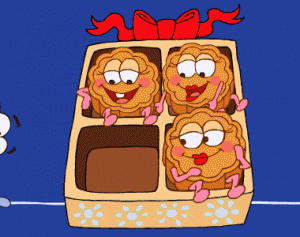 中秋节快乐
中秋节快乐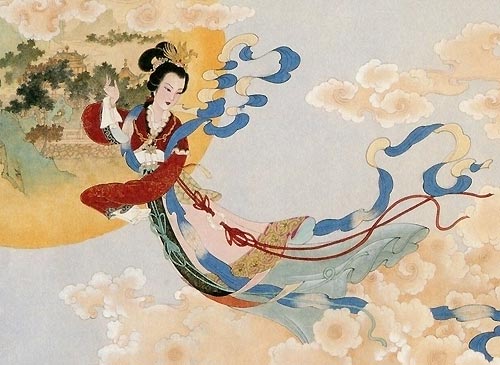



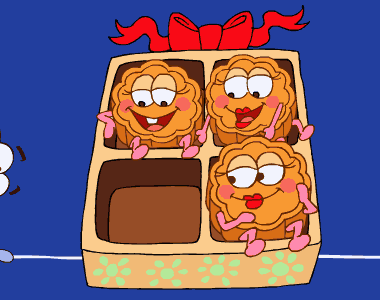
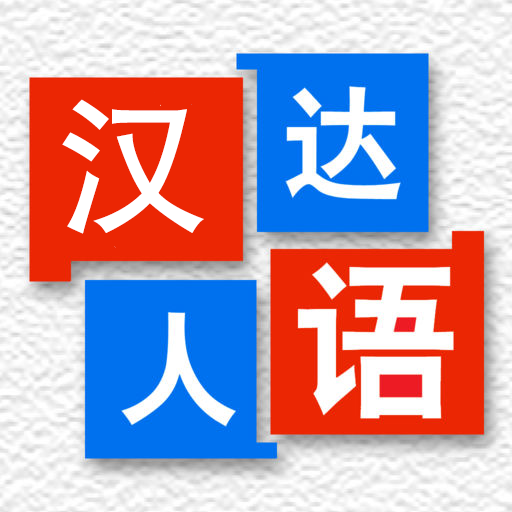
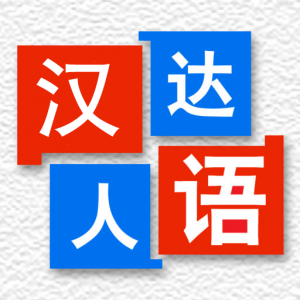 熊猫:老虎,我爱你,我也喜欢我自己。
熊猫:老虎,我爱你,我也喜欢我自己。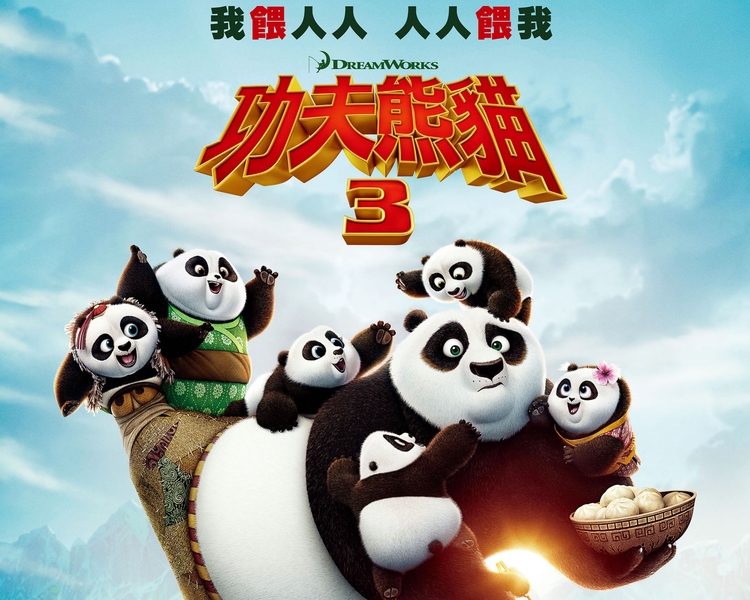
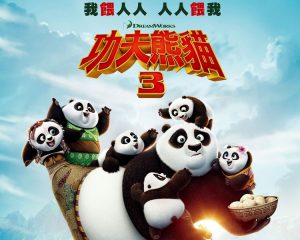 ā bō ,nǐ dé tà chū rén shēng lǚ chéng de xià yī bù 。
ā bō ,nǐ dé tà chū rén shēng lǚ chéng de xià yī bù 。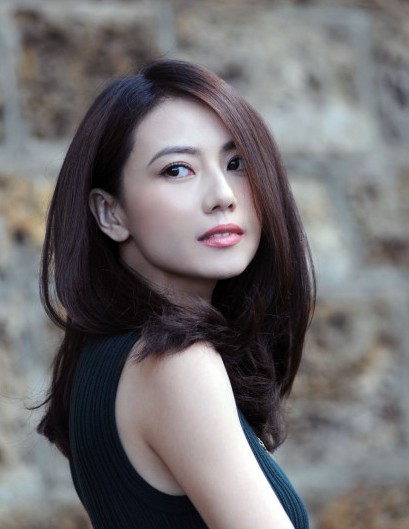
 她好看吗?
她好看吗?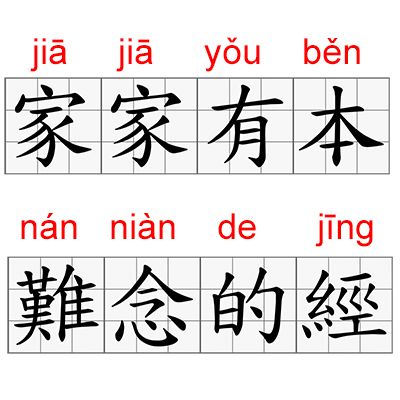



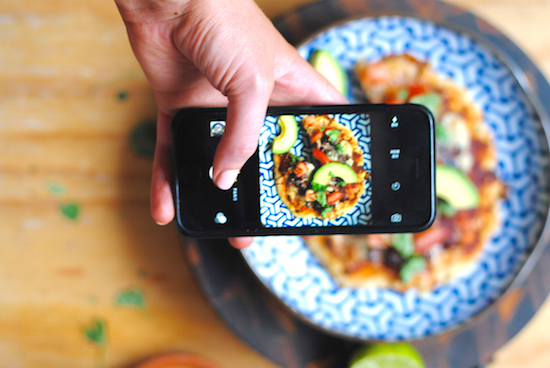

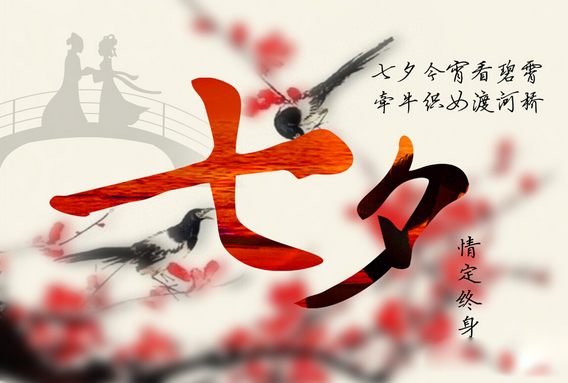
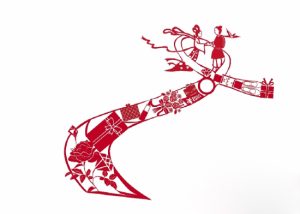 There once was a young, poor, but kind-hearted cowherd called Niulang, and an old ox. The ox actually was once the god of cattle, but downgraded as he had violated the law of heaven. Niulang once saved the ox when it was sick. In order to show its gratitude, the old ox helped Niulang get acquainted with Zhinü (a fairy, the seventh daughter of a goddess and the Jade Emperor) when she escaped from her boring life in heaven to look for fun on earth.
There once was a young, poor, but kind-hearted cowherd called Niulang, and an old ox. The ox actually was once the god of cattle, but downgraded as he had violated the law of heaven. Niulang once saved the ox when it was sick. In order to show its gratitude, the old ox helped Niulang get acquainted with Zhinü (a fairy, the seventh daughter of a goddess and the Jade Emperor) when she escaped from her boring life in heaven to look for fun on earth.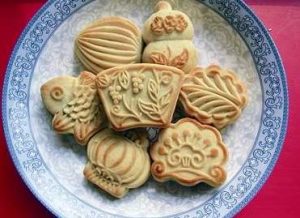 Just before he caught up with Zhinü the goddess of heaven took out her hairpin and created a huge river between them, and they were separated forever by the river that later became known as the Milky Way.
Just before he caught up with Zhinü the goddess of heaven took out her hairpin and created a huge river between them, and they were separated forever by the river that later became known as the Milky Way.